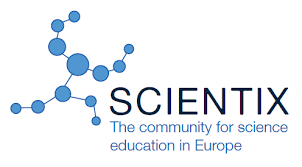eHAND: introduction
Section outline
-



According to recent researches it is very likely that human activities will impact future catastrophes, like earthquakes, storms, floods, landslides, also because population growth and urbanization make communities much more vulnerable to natural hazards. Moreover, hazard-related losses can cause migration and contribute to worsen the related problems.
At the same time, the interest in disaster education has grown rapidly. Several studies confirm that effective results can be obtained in this field by combining direct experience, observation, discovery and action, so disaster and risk education should be part of the national schools curricula and be included in several school subjects. So we planned the eTwinning-Erasmus+ project eHAND (Effects of Human Activities on Natural Disasters) involving 7 partners from Italy, Estonia, Greece, France, Romania, Portugal and Turkey. The project lasts for 3 years and aims at arming our students with the necessary skills to be future "Good citizens" focusing sharply on more complex social issues, such as the links between environmental quality, human equality, human rights and peace and on the critical role of science in understanding and mitigating the effects of extreme events.
In this platform you can find resources about topics related to the Sustainable Development. and other detailed information on our Twinspace.